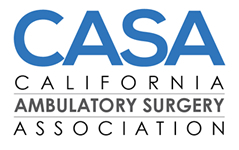Complete Story
01/02/2014
New California Law Amends Adverse Event Reporting Requirements
Governor Edmund G. Brown Jr. signed into law, Senate Bill (SB) 304 (Lieu, Chapter 515, Statues of 2013) which requires an outpatient surgery setting, accredited pursuant to Section 1248.1 of the Health and Safety Code, to report an adverse event to the Medical Board of California (MBC). This change in adverse event reporting requirements will take effect January 1, 2014.
Prior to the passage of SB 304, these accredited outpatient surgery settings were required to report adverse events, as defined in California Health and Safety Code (HSC) Section 1279.1, to the California Department of Public Health.
Beginning January 1, 2014, an accredited outpatient surgery setting will be required to report adverse events as defined in HSC Section 1279.1 to the MBC
- No later than 5 days after the adverse event has been detected; or
- If that event is an ongoing urgent or emergent threat to the welfare, health or safety of patients, personnel or visitors, no later than 24 hours after the adverse event has been detected.
The MBC has established the “ADVERSE EVENT REPORTING FORM FOR ACCREDITED OUTPATIENT SURGERY SETTINGS” to be completed and submitted to the MBC to fulfill this new reporting requirement as specified in Business and Professions Code Section 2216.3. This form can also be found on the Board’s website at: http://www.mbc.ca.gov/outpatient_adverse_event_form.pdf.
If an accredited outpatient surgery setting fails to report an adverse event, the Board may assess a civil penalty in an amount not to exceed one hundred dollars ($100) for each day that the adverse event is not reported following the initial five day period or 24 hour period, as applicable.
The CA Department of Public Health (CDPH) has clarified in letter that adverse event reporting no longer applies to all outpatient settings, but to only accredited entities and these reports should now be sent to the MBC. A copy of the letter can be obtained here CDPH Adverse Event Reporting.
The definition of a reportable adverse event can be found in California Health and Safety Code 1279.1 subdivision (b) at the following link. http://www.leginfo.ca.gov/cgi-bin/calawquery?codesection=hsc&codebody=&hits=20.
Revised Specifications Manual Released
The Centers for Medicare & Medicaid Services (CMS) have posted an addendum to the Ambulatory Surgical Center Quality Reporting (ASCQR) Specifications Manual. Version 3.0a is effective for implementation beginning January 1, 2014, and continuing through December 31, 2014. The manual was updated to reflect changes made to the ASCQR program in the 2014 ASC Final Payment Rule. The updated version 3.0a may be accessed on QualityNet at http://www.qualitynet.org, by selecting Specifications Manual under the “ASCs” tab and then version 3.0a in the Reference Period table.
In 2014 ASCs will need to meet standards and report for Influenza Vaccination Coverage for Health Care Personnel as well as the following new measures:
- ASC-9: Endoscopy/Poly Surveillance: Appropriate follow-up interval for normal colonoscopy in average risk patients
- ASC-10: Endoscopy/Poly Surveillance: Colonoscopy Interval for Patients with a History of Adenomatous Polyps – Avoidance of Inappropriate Use
- ASC-11: Cataracts: Improvement in Patient’s Visual Function within 90 Days Following Cataract Surgery
All Medicare-certified ASCs, regardless of specialty or case mix, are required to report on these measures. CMS has announced that it will delay data collection until April 1, 2014, for the three new quality measures. The data must still be reported in 2015, but only patient encounters from April 1, 2014–December 31, 2014 should be included.


